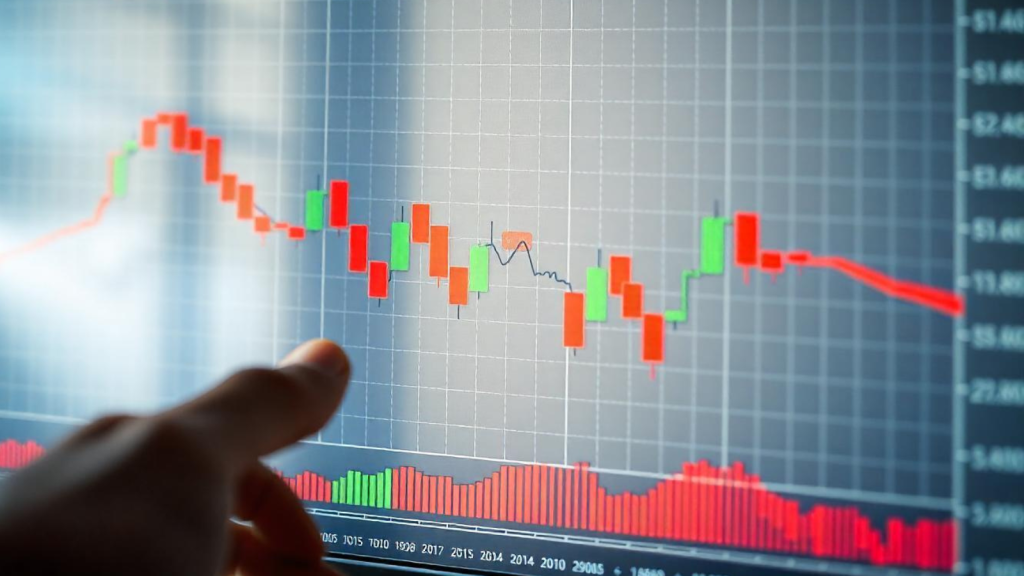Ola Electric’s 12% Share Price Drop: What’s Causing the Decline?

Ola Electric, India’s high-profile electric vehicle (EV) company led by Bhavish Aggarwal, has recently seen a noticeable dip in its share price. Over the past week, shares dropped over 12%, sparking concerns among investors and analysts alike. This decline has drawn attention, especially considering the company’s ambitious growth plans and its importance in India’s rapidly growing EV sector.
Share Price Movement: A Closer Look
In the last week alone, Ola Electric shares experienced a drop of over 12%, a sharp fall that has caused many to speculate on the reasons behind this sudden decline. Just a few days ago, Ola Electric shares opened at ₹1,280, but as of the latest trading session, the stock price had slid down to ₹1,125. Such a decline is significant, especially for a company that has been seeing rapid growth and has drawn considerable investor attention with its plans to dominate the EV market.

Interestingly, while there was a sharp decline in the first half of the week, the share price rebounded by around 10% from its lowest point on Friday, showing some resilience. This quick rebound brought the price back up to around ₹1,237, indicating that there may still be investor confidence in the company despite recent setbacks. However, this rebound also highlights the volatility of Ola’s stock, making it crucial for potential investors to understand the risk factors involved.
Factors Contributing to the Decline
1. Customer Complaints and Service Issues: Ola Electric has been facing a wave of customer complaints, particularly related to the quality and service of its EVs. Reports indicate that Ola receives nearly 80,000 complaints every month, with issues ranging from product reliability to delays in repairs. This customer dissatisfaction has not only drawn regulatory attention but has also likely influenced investor sentiment, raising doubts about the company’s long-term brand strength.
2. Regulatory Pressure: The Central Consumer Protection Authority (CCPA) recently issued an order to Ola Electric to improve its service standards and address the growing number of complaints. Such regulatory oversight can add pressure on a company and potentially lead to additional costs and resource allocation to meet compliance standards, impacting its financial outlook and share value.
3. Market Competition: Ola Electric is part of an increasingly competitive EV market in India, facing stiff competition from companies like Ather Energy, Bajaj Auto, and Hero Electric. As these competitors expand their product offerings and improve their service quality, investors may feel uncertain about Ola’s ability to maintain its market share and customer loyalty.
What This Means for Investors?

The recent fluctuations in Ola Electric’s share price highlight both opportunities and risks for investors. On one hand, the EV sector in India has strong growth potential, supported by government policies and increasing consumer demand for sustainable vehicles. On the other hand, Ola’s recent issues with customer satisfaction, regulatory challenges, and stiff market competition could hinder its growth trajectory and investor returns in the short term.
Looking Ahead: Future of Ola Electric Shares
For investors looking to enter or remain in Ola Electric, monitoring the company’s response to customer complaints and regulatory directives will be essential. If Ola can address these issues and strengthen its service network, it may regain investor confidence. However, without meaningful improvements, the stock could face continued volatility. As always, careful observation of price levels and market developments will be key for investors looking to make informed decisions in this dynamic market.
नवीनतम समाचार
सभी समाचार देखेंलोकप्रिय ट्रक ब्रांड
लोकप्रिय बस ब्रांड
लोकप्रिय तिपहिया वाहन ब्रांड
- अल्टीग्रीन
- यूलर मोटर्स
- महिंद्रा
- पियाजियो
- बजाज
- ग्रीव्स मोबिलिटी
- अटुल
- टीवीएस
- ओमेगा सेइकी मोबिलिटी
- किनेटिक
- लोहिया
- जेएसए
- वाईसी इलेक्ट्रिक
- उड़ान
- एसएन सोलर एनर्जी
- सारथी
- तेजा (ग्रीव्स के पावर से)
- जेज़ा मोटर्स
- ग्रीनरिक
- सिटी लाइफ इलेक्ट्रिक
- अम्पीयर
- बाबा इलेक्ट्रिक
- ई-आश्वा
- बाहुबली ई रिक्शा
- डाबंग
- डेल्टिक
- केटो मोटर्स
- मिनी मेट्रो
- गयाम मोटर्स
- जेम ईवी
- जीकॉन ऑटोमोटिव
- स्काईराइड
- ठुकराल इलेक्ट्रिक
- बैक्सी
- ईब्लू
- हेक्सॉल
- जॉय
- मोंट्रा
- स्टार
- डैंडेरा